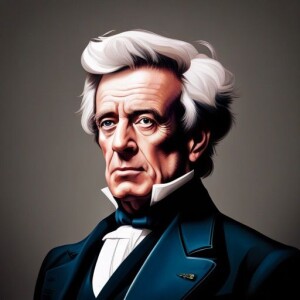Andrew Jackson, the seventh president of the United States, was a man of many faces. He was a military hero, a controversial figure, and a passionate advocate for the common man. Jackson’s presidency was marked by his bold and often divisive policies, which left a lasting impact on American history.
Before he ascended to the presidency, Jackson was a celebrated general who had earned his stripes on the battlefield. He had led American troops to victory during the War of 1812 and had defeated Native American tribes in a series of hard-fought battles. His military prowess made him a hero to many Americans.
However, Jackson’s legacy is also marked by controversy. His Indian Removal Act of 1830 was a dark stain on his presidency, as it forced thousands of Native Americans from their ancestral lands and led to the infamous Trail of Tears. The suffering and death that resulted from this policy are a sobering reminder of the price of power.
Despite this, Jackson is still remembered as a strong and charismatic leader who fought for the interests of ordinary Americans. He was a champion of states’ rights and a fierce opponent of the national bank. His populist policies resonated with many Americans, and his presidency marked the beginning of a new era in American politics.
Today, Andrew Jackson’s legacy is still felt in many ways. His presidency set the stage for the rise of the Democratic Party and the decline of the Whigs. His policies on Native American removal and states’ rights continue to be debated and scrutinized. Andrew Jackson was a complex and multifaceted figure, whose impact on American history cannot be denied.

